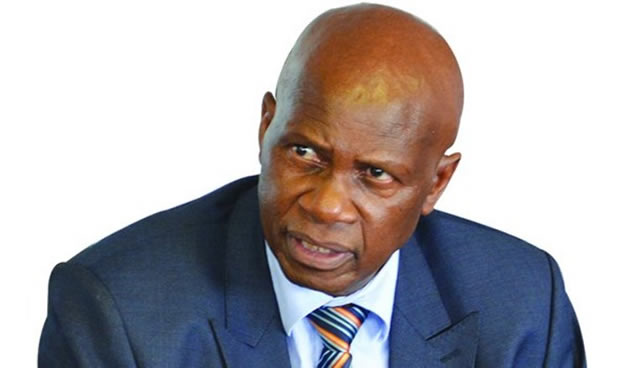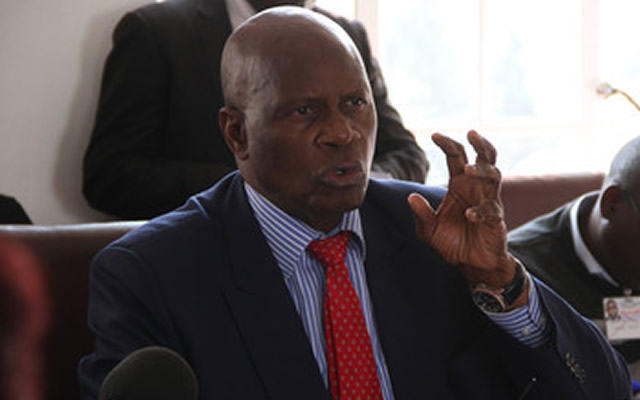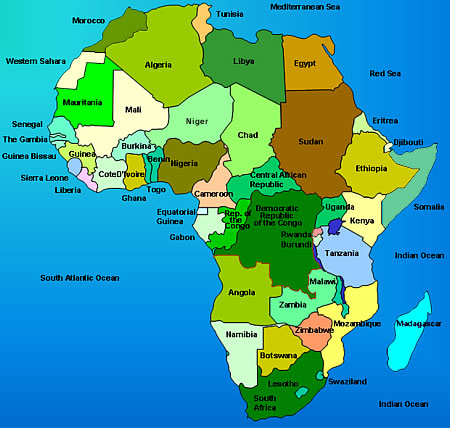FDI Yes, but local is lekker for development agenda

Joram Nyathi Spectrum
FOR the first time in many years, Zanu-PF is being put on its mettle in terms of both policy and principle. The test is in whether the party is distracted enough to shift focus from policy to seek ephemeral glory, or it is confident enough to ride out such distractions in pursuit of an enduring legacy with an impact well beyond Zimbabwe’s narrow borders.
In these trying times, it is tempting to go for miracle economic cures rather than stand on principle, especially when the party is buffeted internally and externally to look for nebulous external agents and trust their nostrums to assuage the anxieties of a restive nation, an opposition lacking in self-trust and a support base almost war-weary and desperate for relief and will lean on a floating straw.
It is in such times that it is well worthy to recall Einstein’s observation that “great spirits have always encountered violent opposition from mediocre minds”.
The biggest challenge to Zanu-PF is not one of policy, but whether the party has the spirit to execute its policies, to marshal its foot soldiers to adhere to principles of honesty and integrity to avoid being impugned for venality.
To that extent, Zanu-PF’s mettle shall be tested on its ability to quickly, resolutely resolve its internal fights, its resolve to fight corruption in its ranks.
On the outside, it will be tested on its ability to resist the distracting chorus about elections from a feckless media, and the seductive temptation to forsake policy and principle in search of economic miracle placebos of FDI being dangled by the IMF.
Zanu-PF has had factional fights for a long time. President Mugabe has apparently been the only one able to bring about a semblance of unity and consistency. At one point he castigated both current Vice President Emmerson Mnangagwa and sacked former Vice President Joice Mujuru for allowing themselves to be described as faction leaders.
But the war escalated ahead of the party’s congress in December last year when there were loud claims from within the party that there was a plot to oust President Mugabe at the forthcoming congress. Mujuru was accused of spearheading that cabal, leading to her dismissal from both the party and Government.
Since then she has been the cynosure for opposition parties angling for an alliance with her, and a subject of cajoling by a media desperate to cull a sympathy vote for her from Zanu-PF. The same media is also desperate to create a coalition of saints out of Mai Mujuru and MDC-T’s Morgan Tsvangirai, a saintliness borne of the two’s liberal sympathies, a call not simply to fight Zanu-PF together, but to abandon the cause of workers and the poor in favour of the IMF’s Greek-style structural reforms.
But that’s aside issue. The challenge for Zanu-PF itself post-congress is that it has failed to move on, to rediscover the spirit which gave it a resounding victory in the July 31 2013 harmonised elections. It has engaged in an endless orgy of internal purges, some apparently engendered by mutually-destructive suspicion among senior members and party officials. Private media have made a meal of these, ever eager to see the end of Zanu-PF and its leadership since the launch of the much-maligned land reform in 2000. Thus where there are no fights, the media have invented them by innuendo.
Mai Mujuru, herself a central figure in and a beneficiary of the revolutionary land reform, has since had her scarlet sins washed white courtesy of her being fired from Zanu-PF and her claimed willingness to blazon her liberation war credentials on Tsvangirai’s “big tent” among viscerally opposed to land reform. It is a most grotesque prospect, but not one beyond contemplation.
But the key issue is that Zanu-PF itself has failed to solidify after its congress and has allowed the media’s exaggerated internal fights to take centre stage, thus taking focus away from the economy, on Zim-Asset. While the party espouses policies which resonate with the electorate, it has been distracted from its core mandate for far longer than it should, thus giving ammunition to those who argue that it is unable to implement its own policies.
The second major internal issue is the cancer of corruption. President Mugabe himself red-flagged this in his 10-point plan for economic growth during a recent State of the Nation Address. More than anything else, corruption has done a lot to taint the name Zanu-PF even if in practice it is the proverbial few apples. The situation has not been helped by a growing perception that those accused of self-indulgence are treated with kid gloves.
Beyond verbal threats, the law has been supine. Whether it’s salarygate in parastatals, SPB or at Psmas or state-owned institutions, law enforcers appear unmoved, thus giving the appearance of general tolerance if not condonation of malfeasance and corruption. People have got away with multiple farm ownership against party policy while others, so-called land barons, have used the name of the party or senior party officials for self-enrichment. These are serious matters which have done a lot to soil the image of the ruling party even among its own ardent supporters. The question is, can the revolutionary party redeem itself?
Now, almost external to Zanu-PF, two narratives have emerged with inexplicable urgency. The key discourses in the past few weeks have centred around foreign direct investment and elections, never mind that constitutionally, they are only due in 2018, almost three years away. How both issues are handled is, once again, a test of Zanu-PF’s mettle.
Why talk of elections now in the midst of an economic malaise?
This is an issue on which the ruling party should tread carefully. It is chiefly a creation of the media, given that the MDC-T is not interested in elections at the moment, nor in 2018 if it sticks to its current mantra that it won’t take part in any elections in the absence of electoral reforms. The expectation that Zanu-PF will fight in its corner by legislating itself out of power or by enacting laws which delegitimise its victory is pretty bizarre.
Instead, it is the media which have gone delirious in the past few weeks about “eagerly-anticipated 2018 elections” as if that date were in two months’ time. Why should the happy outcome of an eagerly-anticipated election be dependent on a coalition of convenience if that’s not a tacit admission of weakness by parties with nothing but people’s hunger to sell?
The danger is for Zanu-PF to allow itself to slip into this elections trap. It is a hazard which could be seriously distractive to the implementation of Zim-Asset programmes. It doesn’t obviously want its every project trivialised, scoffed at as an election, vote-buying gimmick, which is obviously the idea of trying to heat up a non-existent election.
The focus should be to deliver on short-term deliverables and work diligently on long-term policy agendas which meet the objectives of the land reform and black economic empowerment. These fundamental policy objectives, which feature prominently even among the UN’s sustainable development goals, are legacy issues, looking way beyond elections, policies which address historical colonial injustices while also seeking to grow a new, inclusive economy mainstreaming the indigenous people.
Come election time, Zanu-PF will in part be judged on delivery, on both long-term and short-term Zim-Asset goals. That is why it should keep its eye on the ball.
Finally, let’s talk FDI.
There are three issues here: the media, the IMF and Zanu-PF.
In that order, the din of investors coming to our shores indicates that serious entrepreneurs have lost faith in the suborned voice of the private media about Zimbabwe’s country risk. That hollow slogan has been sung for 15 years, and squeamish, political investors have lost out while the same media make profit from their scaremongering.
Next, the IMF has been standing guard at our gate since 1991, the start of esap. My honest view: if those rabidly anti-empowerment policy intellectuals only spent half as much critical thought on IMF imposts, few African nations would be saddled with the debt they carry now. The IMF and the World Bank would not be gods if our intellectuals did not worship them.
Enter Zanu-PF. Finance Minister Patrick Chinamasa is correct that we should reduce the rhetoric about sanctions. He is equally right that Zimbabwe needs FDI. It’s again agreed that we have to engage the West.
But let not the last point be confused with the “international community”. It is therefore misleading to say we are doomed without Western investment; that we can’t develop without IMF loans. The truth is simply that the IMF wants its debt and arrears paid. For that to happen, Western investors must come on terms which allow the IMF to get its money. It is back to structural reforms — GDP growth without development, without jobs, without equity. Forget economic recovery if that’s the route Zimbabwe has chosen.
The IMF has no interest whatsoever in the broader, inclusive economic development sought by Zanu-PF. That is why Minister Chinamasa is getting praises from the same quarters who are opposed to the land reform and black empowerment policies.
I hope he gets the slant!
Yes, Zimbabwe needs investors but its people must benefit ahead of the IMF. More than that, I know of no nation which has developed, let alone prospered, from FDI without promoting a culture of saving and business integrity. We need local investors, local talent, local skills and honest entrepreneurs to push the development agenda.
For that to happen, Zanu-PF must stop its internal wars and focus on the economy; it must commit to fight corruption and, most important, it must pursue without apologising its indigenisation agenda as a legacy issue, not an election gimmick.










Comments